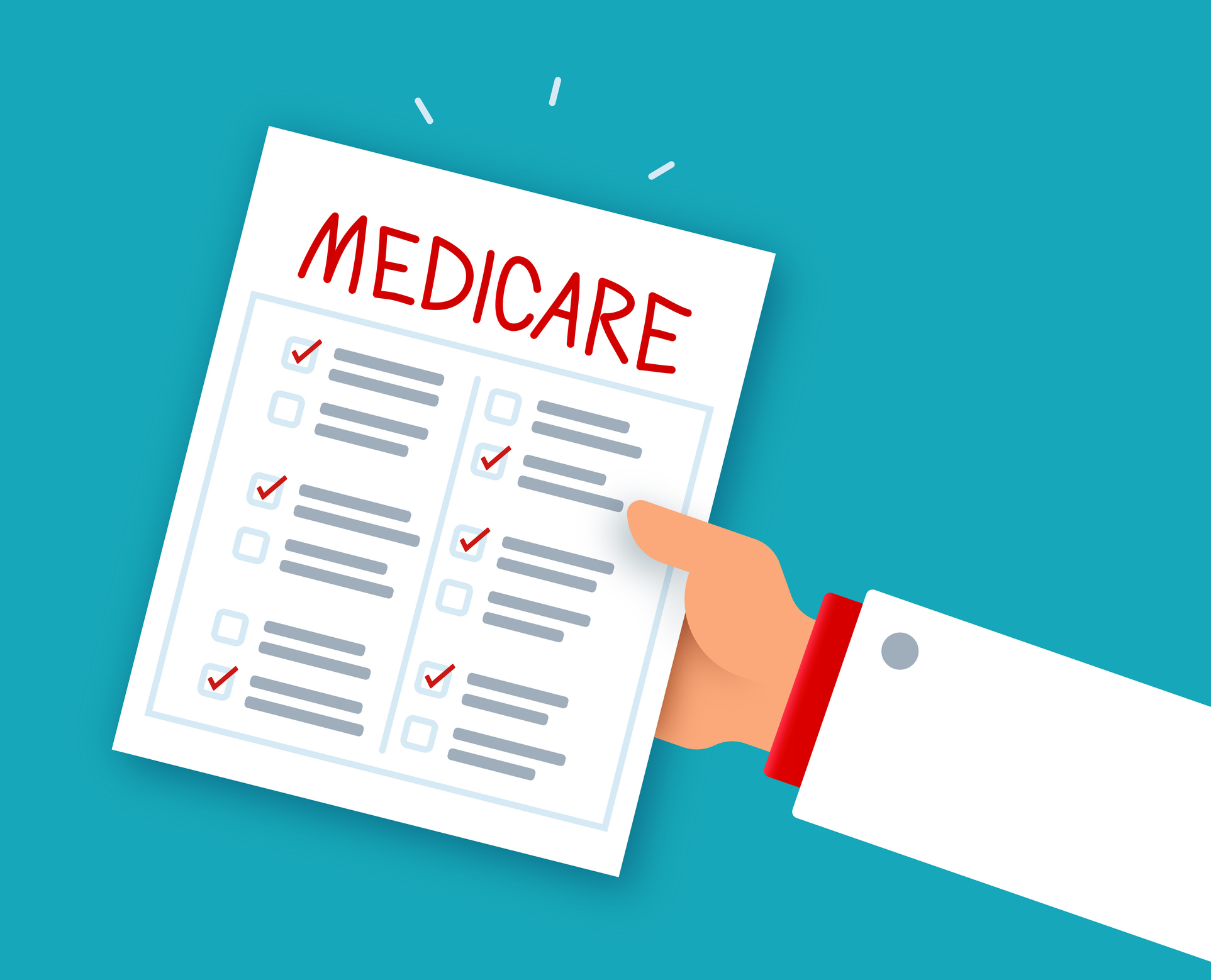Should You Prepay Your Funeral?
Planning your funeral in advance could save your loved ones a lot of hassle. But are prepaid plans a good deal?

Profit and prosper with the best of Kiplinger's advice on investing, taxes, retirement, personal finance and much more. Delivered daily. Enter your email in the box and click Sign Me Up.
You are now subscribed
Your newsletter sign-up was successful
Want to add more newsletters?

Delivered daily
Kiplinger Today
Profit and prosper with the best of Kiplinger's advice on investing, taxes, retirement, personal finance and much more delivered daily. Smart money moves start here.

Sent five days a week
Kiplinger A Step Ahead
Get practical help to make better financial decisions in your everyday life, from spending to savings on top deals.

Delivered daily
Kiplinger Closing Bell
Get today's biggest financial and investing headlines delivered to your inbox every day the U.S. stock market is open.

Sent twice a week
Kiplinger Adviser Intel
Financial pros across the country share best practices and fresh tactics to preserve and grow your wealth.

Delivered weekly
Kiplinger Tax Tips
Trim your federal and state tax bills with practical tax-planning and tax-cutting strategies.

Sent twice a week
Kiplinger Retirement Tips
Your twice-a-week guide to planning and enjoying a financially secure and richly rewarding retirement

Sent bimonthly.
Kiplinger Adviser Angle
Insights for advisers, wealth managers and other financial professionals.

Sent twice a week
Kiplinger Investing Weekly
Your twice-a-week roundup of promising stocks, funds, companies and industries you should consider, ones you should avoid, and why.

Sent weekly for six weeks
Kiplinger Invest for Retirement
Your step-by-step six-part series on how to invest for retirement, from devising a successful strategy to exactly which investments to choose.
Plan your own funeral? Hah. Most of us not only avoid talking about it, we manage to avoid thinking about it. Even writers of personal-finance get a little queasy at the thought.
See Also: The Basics Special Report
But for those of you who've made it to the thinking stage, here are ways you can make things easier for the loved ones you'll leave behind.
Consider including personal information that can be used for writing your obituary. Memorial societies and funeral homes offer planning forms for this purpose. They can be useful, but you might want to add some personal notes to this one-size-fits-all approach.
From just $107.88 $24.99 for Kiplinger Personal Finance
Become a smarter, better informed investor. Subscribe from just $107.88 $24.99, plus get up to 4 Special Issues

Sign up for Kiplinger’s Free Newsletters
Profit and prosper with the best of expert advice on investing, taxes, retirement, personal finance and more - straight to your e-mail.
Profit and prosper with the best of expert advice - straight to your e-mail.
When you've done all this, record any specific instructions you have regarding burial, cremation, or organ donation. Make copies of the entire file and hand them out to your spouse, to other appropriate family members, and perhaps to the attorney who drew up your will. (If you want to spare them the stress of contemplating the details of your disposal before your demise, put everything in an envelope marked "To be opened in the event of my death.")
Why hand out this information when you could just tuck it away in your safe-deposit box or attach it to your will? Others have done that and their loved ones always discover the documents -- but often after the funeral.
Prepaid funerals
It is possible, if you are so inclined, to choose the funeral home long before you need it, and even to pay for all or part of the home's services years in advance. So-called preneed plans, sold by funeral homes, allow you to arrange for the type of services and casket you want and pay now with a lump sum or through installments. The home either puts your money in a trust fund with the payout triggered by your death, or buys an insurance policy naming itself as the beneficiary.
If you're inclined to choose this route, make sure you're being guaranteed the services you specify at the contracted price. Some contracts call for additional payments for "final expense funding." That means that if the funeral home's charges increase between the time you sign up and the time you sign off, somebody will have to pay the difference. Also consider these questions:
- What if you change your mind? Can you get all or part of your money back?
- Will your money earn interest? If so, how much? Who gets it?
- If there is an insurance policy involved, is there a waiting period before it takes effect? How long?
- What happens when prices increase? Are increases covered by the plan or will your family have to pay extra?
- Does your health affect the terms of the plan?
- What happens if the funeral home goes out of business? Is your plan taken over by another funeral home? If so, which one?
- What happens if you move? Can the plan be transferred to another funeral home in a different state?
- If there's money left over after your funeral, will your heirs get it, or does the home keep it?
A better way to pay ahead
A prepaid plan like the ones described above can be a convenient and reassuring way to spare your family some measure of emotional stress when the time comes: The big decisions about your funeral will have been made, the money paid, and that will be that. Still, from a strictly financial point of view, you can do better.
For example, you could simply buy a life insurance policy with the proceeds earmarked for funeral expenses, although the relatively low level of coverage it would take to pay for a funeral doesn't translate to the most economical level of insurance premiums.
You could even set up your own burial "trust fund," which isn't as complicated as it sounds. You do it at a bank or credit union through what's often called a Totten trust. Now, a Totten isn't actually a trust. It's a regular bank account with a designated "pay on death" inheritor. When you open the account, you name a relative or friend (or even the funeral home) as beneficiary. You put in the money and collect the interest. You can close the account any time you want, transfer the balance to a different bank, or change the beneficiary. When you die, the beneficiary collects the account balance and pays for the funeral.
Profit and prosper with the best of Kiplinger's advice on investing, taxes, retirement, personal finance and much more. Delivered daily. Enter your email in the box and click Sign Me Up.
-
 The New Reality for Entertainment
The New Reality for EntertainmentThe Kiplinger Letter The entertainment industry is shifting as movie and TV companies face fierce competition, fight for attention and cope with artificial intelligence.
-
 Stocks Sink With Alphabet, Bitcoin: Stock Market Today
Stocks Sink With Alphabet, Bitcoin: Stock Market TodayA dismal round of jobs data did little to lift sentiment on Thursday.
-
 Betting on Super Bowl 2026? New IRS Tax Changes Could Cost You
Betting on Super Bowl 2026? New IRS Tax Changes Could Cost YouTaxable Income When Super Bowl LX hype fades, some fans may be surprised to learn that sports betting tax rules have shifted.
-
 What DOGE is Doing Now
What DOGE is Doing NowThe Kiplinger Letter As Musk's DOGE pursues its ambitious agenda, uncertainty and legal challenges are mounting — causing frustration for Trump.
-
 COVID Hospitalization Rates See an Uptick As Winter Looms — The Kiplinger Letter
COVID Hospitalization Rates See an Uptick As Winter Looms — The Kiplinger LetterThe Kiplinger Letter A new Omicron booster is available, but the elderly are still at risk and winter is right around the corner.
-
 Will Weight-Loss Drugs Spike Medicare Costs?: The Kiplinger Letter
Will Weight-Loss Drugs Spike Medicare Costs?: The Kiplinger LetterEconomic Forecasts Lawmakers are trying to get weight-loss drugs like Wegovy covered by Medicare. Long-term savings are possible, but it could cost the program $27 billion.
-
 Greenland, U.S. Plans to Boost Tourist Economy: Kiplinger Economic Forecasts
Greenland, U.S. Plans to Boost Tourist Economy: Kiplinger Economic ForecastsEconomic Forecasts A U.S. congressional effort could see some Canadian visitors get longer stays, meanwhile, Greenland bids to be the next vacation hotspot.
-
 Medicare Drug Price Negotiations Latest: Kiplinger Economic Forecasts
Medicare Drug Price Negotiations Latest: Kiplinger Economic ForecastsEconomic Forecasts Medicare drug price negotiations: Early signs have emerged of how these key talks will be handled.
-
 Forces That Affect Your Estate Plan
Forces That Affect Your Estate Planretirement From probate and ownership division to the taxing arm of Uncle Sam, here are four things that can influence what happens to your belongings.
-
 Make a Plan for Your Retirement Savings
Make a Plan for Your Retirement Savingsretirement The first step to effectively using your 401(k) is to assess your retirement needs.
-
 Tapping Your IRA in Retirement
Tapping Your IRA in Retirementretirement You can cash in your IRA all at once, but doing so could subject you to an enormous tax bill. You'll probably do better tax-wise by taking out as little as necessary each year.